Five Products: Sugar Substitutes Taking Over the Sweet Scene
In an era where health-conscious consumers are steering clear of excessive sugar and embracing mindful dietary choices, manufacturers are taking on the sweet challenge to deliver delectable treats that don't compromise on taste. From the enduring allure of stevia to the new possibilities created by allulose and monk fruit, these alternatives are not just reshaping consumers' food experiences but also redefining the way we think about indulgence.
A 2022 survey by the International Food Information Council (IFIC) found that 73% of consumers are trying to limit or avoid sugar in their diet, and 67% are avoiding added sugars. The survey also found that "low in sugar" is one of the top attributes associated with healthy food, just behind "fresh." Here, we shine a spotlight on five products that are making waves in the sugar alternative space and capturing the attention of consumers seeking both flavor and nutrition.
1. Richesse Konjac Bubble Honey Yoghurt (TH)
Thailand’s Saha Pathanapibul has introduced their Richesse Konjac Bubble Honey Yogurt. Sweetened with stevia, a naturally derived sugar substitute with no calories, the Richesse yoghurt features an elevated chewy texture thanks to the addition of konjac bubbles. This innovative approach to yogurt, available in Honey & Brown Sugar Flavor, invites consumers to savor the experience, and think less about what’s removed.
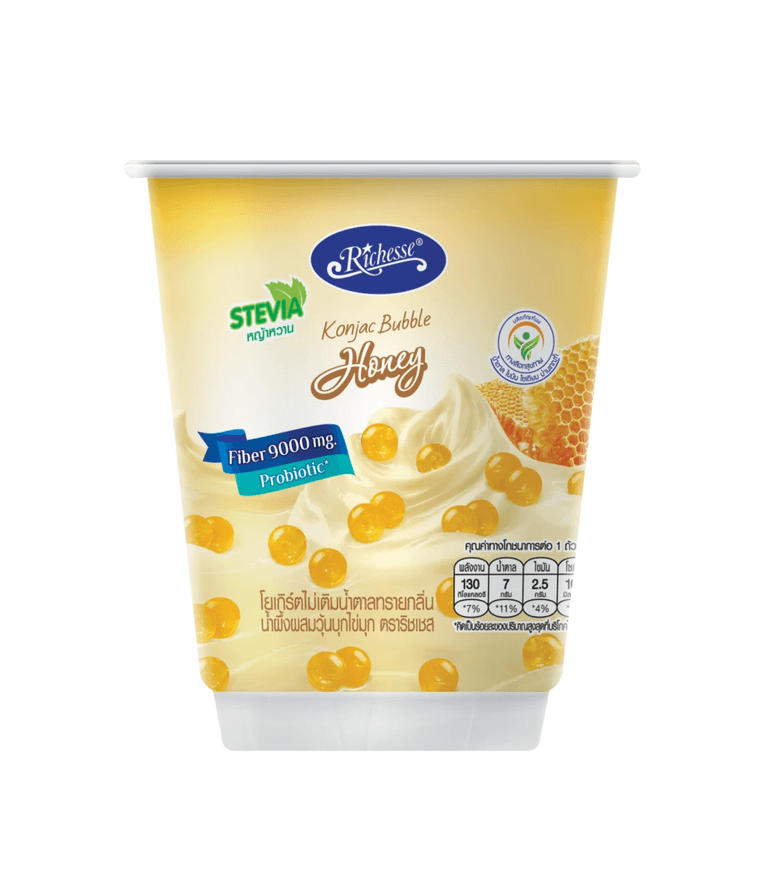
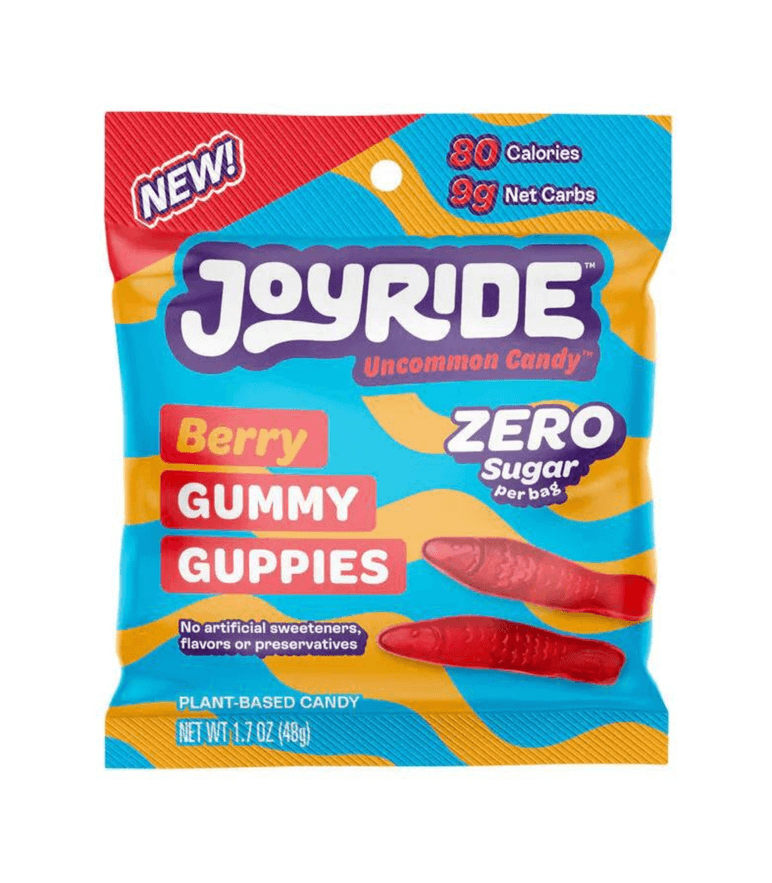
2. JOYRIDE Zero Sugar Berry Gummy Guppies (US)
JOYRIDE Zero Sugar Berry Gummy Guppies redefine the concept of gummy snacks with a commitment to health-conscious consumers. These fish-shaped gummies are sweetened with allulose, a low-calorie sugar substitute that avoids rapid spikes in blood sugar levels. The brand claims that the combination of blackberry, raspberry, and cherry natural flavors adds fruity flavors in every bite. These gummies are also plant-based and free from artificial flavors and preservatives, supporting the message ‘uncommon candy’.
3. Scotts Peanut Butter Cup Protein Balls (US)
Scott's Protein Balls provide a healthy alternative to classic peanut butter goods with the launch of their new Peanut Butter Cup flavor. This latest addition to the brand’s product range forms part of Scott's organic range, which is sweetened with allulose and meant to satisfy both taste and health. The brand's entry into the lucrative peanut butter cup industry allows them to capitalize on the rising customer interest in nutritional snacks while fulfilling cravings.
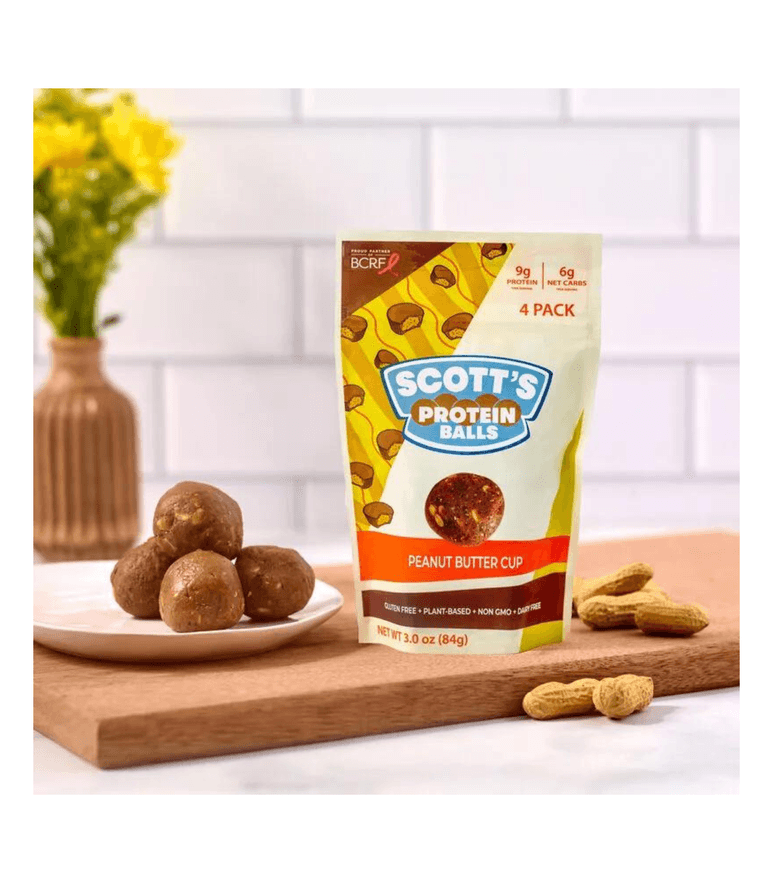
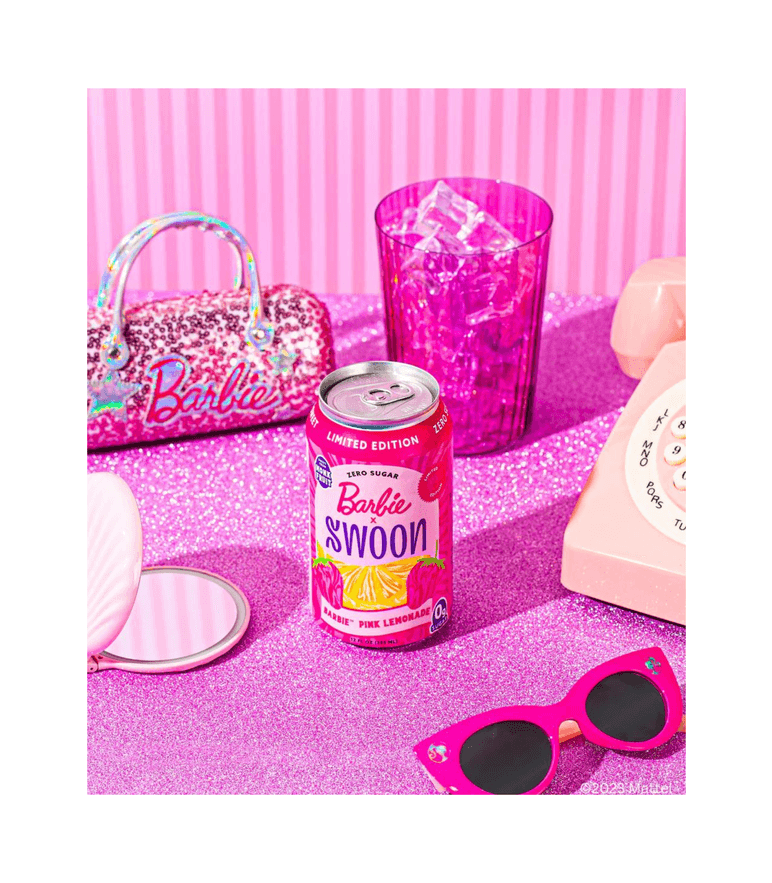
4. Barbie x Swoon Pink Lemonade (US)
Barbie in collaboration with Swoon brings a touch of glamor to consumers beverage experience with the launch of their limited-edition Pink Lemonade beverage. Sweetened with monk fruit, a natural, calorie-free sugar substitute that can taste up to 250 times sweeter than sugar, this beverage is available in three flavors: lemon iced tea, raspberry iced tea, and pink lemonade. This collaboration isn't just about taste; it's about embracing a sugar-conscious lifestyle for a new generation. At the time of writing, Monk Fruit is permitted for use in over 60 countries, however the U.K and European Union have yet to allow its use.
5. De Villers Chocolate Cookie Slab (SA)
The De Villers Chocolate Cookie Slab exemplifies the art of balancing indulgence and health-conscious choices. Sweetened with monk fruit, this slab offers a sophisticated twist on traditional chocolate treats. According to the brand, ground cocoa beans and roasted almonds create a velvety, decadent base, while the inclusion of carefully selected, delectable cookie pieces add layers of flavor and texture. It's a testament to how monk fruit can elevate a classic indulgence into a wholesome, gourmet experience, catering to the evolving tastes of today's consumers.
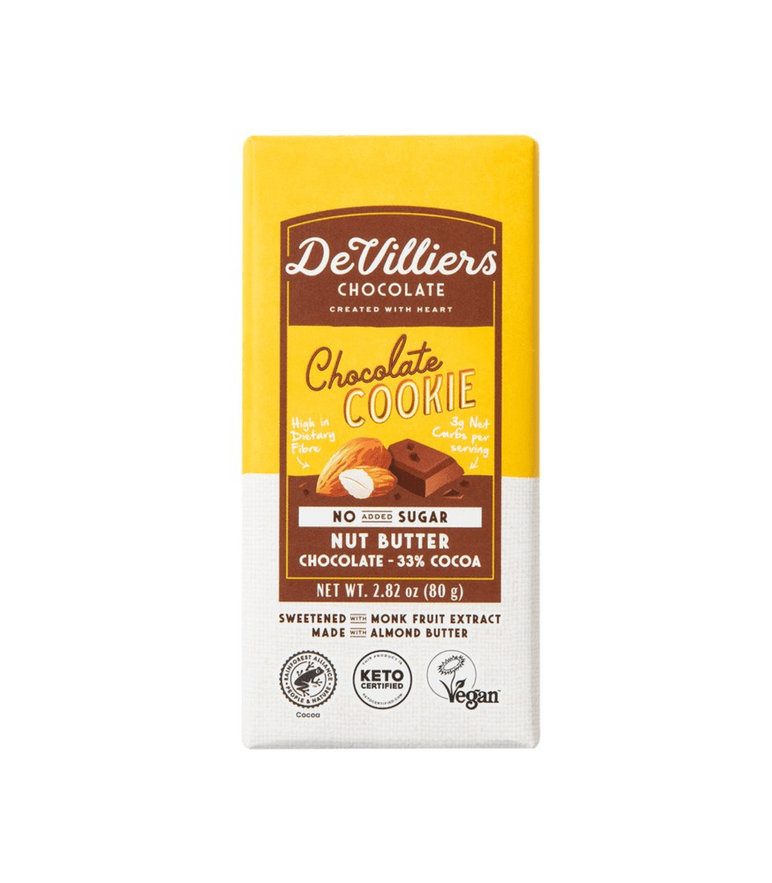
These five products demonstrate that low calorie consumption does not have to mean low enjoyment. That said, global consumption of sugar is expected to rise on the back of middle-class expansion across India and China. In fact, India ranks as the top consumer of sugar worldwide, followed by the European Union and China.
Without doubt, the rising demand for sugar is being driven by enduring political, economic, and societal instability, driving so-called comfort eating. For brands to appeal to these same consumers’ health and wellbeing concerns it is important that communications don’t over play the source of sweetening. One thing that we know for sure is that consumers are not prepared to compromise, and sugar alternatives still carry negative baggage.
To unlock the full potential of your brand messaging and product performance, trust our dedicated team of experts to find that sweet spot with consumers. Get in touch with us by clicking on the link below.